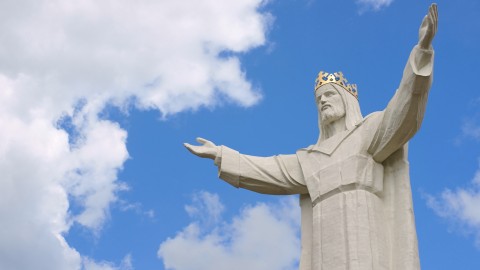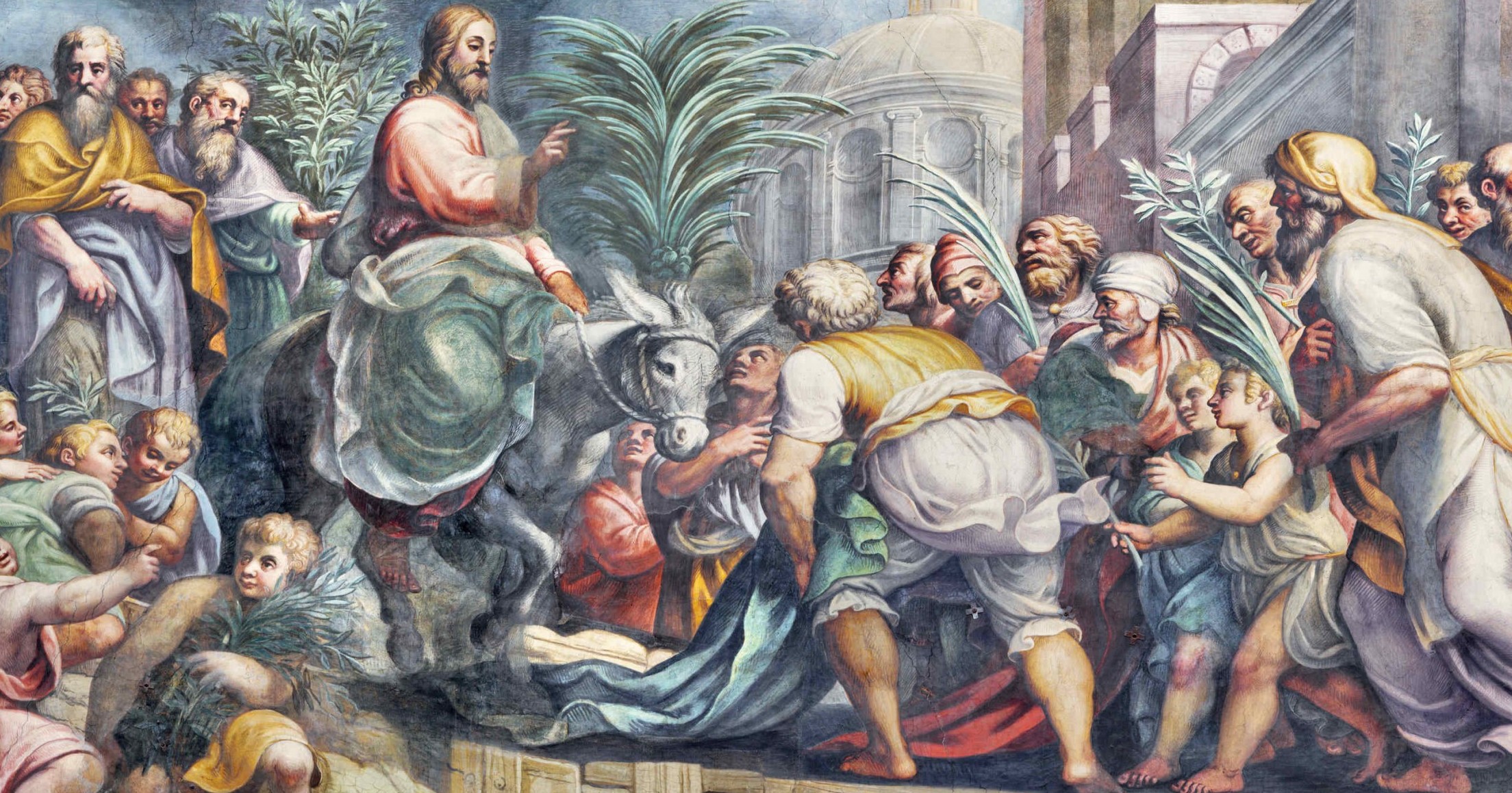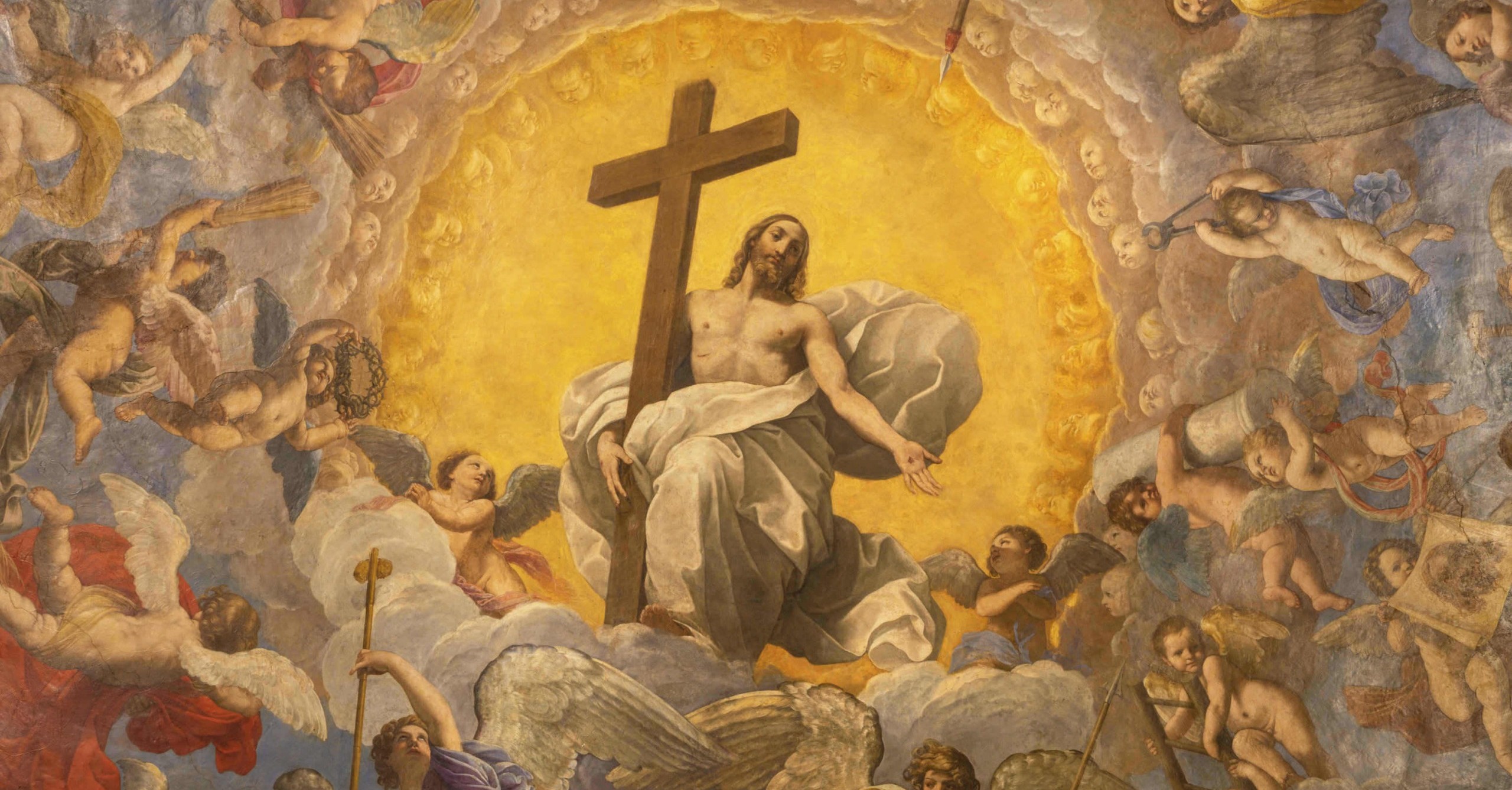Patriarch Archbishop Craig Bates’ homily on the Second Sunday in Easter 2, 19 April 2020
This time of confinement is difficult for many people, especially those in developing nations, the poorest of the poor, and many of you who need to return to work to support your families and extended families. It’s really hard for those working 12 hours a day or more in hospitals or nursing homes, or in service occupations. I’m praying for you, and I know many of you pray for these people. They will be glad when all this is over.
Although it has been difficult, I’m thankful that this time has given me hours to pray and reflect on God’s Word without any distractions. It has renewed in me a longing to receive the body and blood of Christ in the midst of the Eucharistic community – never again will I take that for granted. I’m thankful for men like your Bishop who are preaching at the Eucharistic table so I can receive spiritual communion, for daily prayer services such as the one in Europe I join every day, and for sermons I’m listening to from around the world.
I’m an introvert and know what it is to withdraw and isolate, but this is different: it has become a time of solitude with the Lord Jesus. God has been speaking to each of us – if we’re listening. The Church has redeemed this time, and I’m thankful for that. We will come out of this closer to God and more immersed in His mission.
Receive Christ’s peace
The Apostles have heard early on Sunday morning that Jesus is alive and the tomb is empty. Two have rushed to the tomb and returned with reports. They’ve locked themselves in a room for fear of the Jewish leadership. There were 600,000 to 1 million people in Jerusalem at the time, most of whom had never heard of Jesus. Many had been crucified, and there had been false “messiahs” and false prophets. Rome had rid itself of someone who might have caused trouble; but the Jewish leadership, who thought they had cut off the head of the “Nazarene” movement, might – at least in the minds of the Apostles – go after the top leadership. I’m sure it’s not only fear that has them locked in there, but also discouragement, despair, uncertainty about the future, and wondering why the tomb is empty and what this is all about.
In the midst of that, Jesus appears. There’s Peter who rejected Him, the others who are hiding for fear and who’d dispersed and run away… they’re not at a high point in their relationship with Jesus, and now He’s in the midst of them, perhaps the last person they wanted to meet. Jesus doesn’t meet them with questions about why they’re there. He doesn’t point out their fear, disappointments, despair and uncertainty; He doesn’t answer their questions about the empty tomb. He says to them, “Peace – God’s Peace, Shalom, the presence of God – be with you”. Then He shows them His wounds from Calvary. He’s standing there in full divinity and full humanity. He shows them that humanity, that moment of love, the wounds of the cross, the wounds of eternal forgiveness, the wounds of mercy, the wounds that are evidence not only of His humanity but of the love of God. They are confronted with the depth of divine love, a love that is endless, an enormous abyss into which we can fall.
Christ’s mission of forgiveness
Then again He says, “Peace be with you. As the Father sent Me, I am sending you.” Jesus comes to them, and to us, and wants us to participate fully in His humanity and His divinity, but also in His mission – the mission the Father has given: God so loved the world that He gave His only Son, that whoever believes in Him should not perish but have eternal life. The Church, you and I, have a divine mission – God’s mission. Leadership mentors want us to have vision and mission statements, and it’s good to try to unfold that for our local communities. But actually we only have one mission as a Church: “What sins you forgive, they are forgiven; what sins you retain, they are retained”. It’s going forth into all the world with the good news, baptising and immersing the nations into the love of God and teaching them to obey everything Jesus taught, particularly the Commandment to love one another.
I’m not going to talk about retaining sin, except to suggest that sin is retained when the one confessing the sin hasn’t really asked for forgiveness but permission. More importantly, we have the same mission as Jesus, which is to forgive. Jesus doesn’t retain sins – He forgives. When there is confession and repentance, Jesus offers forgiveness. There is no question that we have to be aware of our own sin: if we say we have no sin, we deceive ourselves and the truth is not in us. All of us are sinners and fall short of the glory of God; all of us are weak and fall, sometimes several times daily. But we know that in spite of the selfishness, pride, greed, gossip, anger, resentment, sexual immorality, lust, addictions, whatever it is… we can come to the Lord, and if we meet Him with a genuine desire to be in Him, He’ll forgive us.
So serious is Jesus about sin and the forgiveness of sin that He dies for us. Our mission is to bring those around us into God’s forgiveness. Jesus meets sin with mercy, forgiveness, love, and a willingness to die for the sinner and to open the way to salvation and wholeness. We don’t counsel people out of sin – we forgive them so they can experience the love of God through us. It’s not human love, which is so conditional, but God’s love, which is very difficult and requires us to walk in humility, to walk in His humanity and divinity, and to allow that to be formed in us through prayer, Scripture and especially the Eucharist. We love out of His love: Jesus doesn’t tell us to love one another – He tells us to love as He loved us, the depth of His love. We forgive out of His forgiveness, not ours, as we have been forgiven – and those who have been forgiven much will love much. I’ve been blessed to have known people who have been forgiven so much, because I’ve found out how much they love; and they love me, and I’ve encountered God’s love – one of my favourite songs has been “I can sing of His love forever”.
God is inviting us to participate
Thomas wasn’t there for the encounter. He comes back and they tell him they’ve seen Jesus, and he says, “I’m not going to believe unless I see for myself, and see and touch His wounds.” Jesus love so much that He comes back to Thomas and shows him His wounds and invites him to touch them, particularly His side from which flowed blood and water, which the Fathers of the Church called Eucharist and Baptism. Jesus doesn’t condemn Thomas for his doubts, but draws him into His wounds of forgiveness, love and mercy. He encounters Jesus’ humanity and the wounds of that human love, and in that he recognises the divinity of Jesus and proclaims, “my Lord and my God”. Jesus invites us to the same thing, to participate in every Eucharist where we encounter Him, body, soul and divinity, in bread and wine, and proclaim, “my Lord and my God”. It’s in this Eucharistic feast that we proclaim His death until He comes again, His forgiveness and love, and proclaim and experience the promise of that eternal banquet with Him in heaven.

Jesus tells Thomas, “You are blessed because you have seen; how much more blessed are those who have not seen and yet believe.” That’s us – to believe even though we haven’t seen. Even though we glance at bread and wine, we are sent with the same mission as Jesus. It’s urgent that when we come out of solitude, having drawn closer to Jesus and shared in some way His suffering, we come out knowing we’re still weak and broken, but that it’s not about us – it’s about Him, and that He has called us. We’ll always remain weak; we’ll be weak, perhaps weaker, when we die; and that’s good: when we are weak, He will be strong; and even at our death He’ll meet us and drive away the fear of death. Let us see today when we glance on the bread and wine, that Christ is in us. Let us open our lips for a moment and say, “my Lord and my God”. Let us hear His voice, no matter how long this pandemic takes: “Peace be with you in the midst of the pandemic. As the Father has sent Me, I am sending you. Your sins are forgiven. Go, forgive, and tell others they are forgiven.”
This is the day of the Resurrection. Christ is alive. Christ is alive in your room. He’s in the midst of us, and He’s calling out your name. May God give us the grace to answer yes and amen. God bless you.









